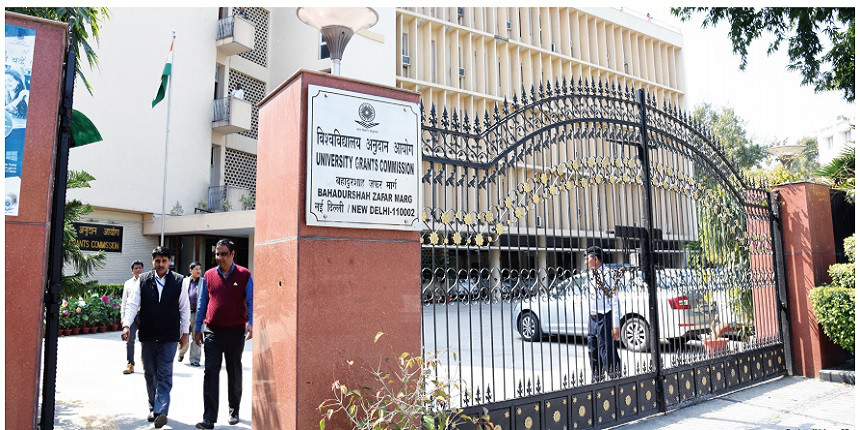UGC releases draft regulations for joint, dual degree, twinning programmes
Abhay Anand | March 4, 2021 | 05:04 PM IST | 2 mins read
UGC: The regulations are in public domain for comment till March 15, said the education ministry.

NEW DELHI: The University Grants Commission (UGC) has drawn up draft regulations for offering joint and dual degrees and for twinning programmes in which it has allowed the top 100 Indian universities in the National Institutional Ranking Framework (NIRF) to collaborate with top 500 foreign universities in international rankings. The draft has been placed in the public domain for comment till March 15, 2021.
Union Minister of Education Ramesh Pokhriyal ‘Nishank’ has announced that the UGC has placed the draft Regulations on academic collaboration between Indian and foreign higher education institutions in the public domain.
Indian institutions with a minimum score of 3.01 awarded by the National Assessment and Accreditation Council (NAAC) or among the top 100 in the university category of the NIRF or an Institution of Eminence (IoE) will be eligible for the collaboration with any foreign higher education institution figuring in the top 500 of Times Higher Education or QS World University ranking.
The draft regulations have been prepared as per recommendations made in the new National Education Policy (NEP) 2020 which calls for permitting credits acquired in foreign countries to be counted for the award of a degree.
“These regulations shall not be applicable to programmes offered in online mode and open and distance learning mode,” reads the draft.
Dual, joint degrees and twinning
As per a statement issued by the ministry of education, under the “twinning arrangement”, students enrolled with an Indian higher education institution shall be able to undertake their programme of study partly in India, complying with relevant UGC regulations, and partly in the foreign higher education institution.
“Moreover, credits earned by the students at a foreign education institution shall be counted towards the degree or diploma awarded by the Indian higher education institution,” the statement reads.
It further states that in the case of the joint degree programme, the curriculum shall be designed jointly by the collaborating Indian and foreign higher educational institutions and the degree shall be awarded by both the collaborating institutions.
Exit pathways
The draft states that fees will only be charged for the residential period at respective institutions. It also states that higher education institutions shall make provisions for exit pathways for students who are unable to complete the joint degree programme or dual degree programme with a clear specification with respect to the future acceptance of credit earned by the student.
“Dual Degree Programme under these regulations shall be conferred by the Indian and foreign higher education institutions, separately and simultaneously, upon completion of degree requirements of both the institutions,” it reads.
For the dual degree course, the students will have to earn at least 50 percent of total credits from the Indian institution. The draft states: “The collaborating higher education institutions shall ensure that the credits earned by the students shall not be from overlapping course contents or curriculum.”
Write to us at news@careers360.com.
Follow us for the latest education news on colleges and universities, admission, courses, exams, research, education policies, study abroad and more..
To get in touch, write to us at news@careers360.com.